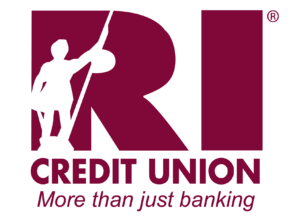How can we help you?
Accounts & Transactions
Our routing number is 211590493.
Membership is open to anyone who lives or works in Rhode Island or within 50 miles of the Rhode Island border.
Opening a Prime Share Account establishes your membership. You can open an account in person by visiting a branch location and presenting two acceptable forms of identification. Proof of residence may be required if your current residence address does not appear on your identification.
To update your member information please log in to Online Banking and select Settings followed by Profile.
Changes of address can also be made in person at any branch location or a signed written request mailed to:
Rhode Island Credit Union
160 Francis Street
Providence, RI 02903
Our Cranston branch has a coin counting machine that is available free to our members.
Requests to place a check order can be made in any branch, by calling 401.751.7440, by mailing in a check reorder form, or by sending a secure message through online banking.
Mobile Deposit
With mobile deposit, you can make deposits of paper checks to your checking or savings accounts using a mobile device.
Rhode Island Credit Union does not charge for this service.
You must restrictively endorse a check that is deposited by Mobile Deposit by writing "MOBILE DEPOSIT AT RICU" above or below your signature on the back of the check or check the mobile deposit box and write "AT RICU", if applicable. Any checks not properly endorsed will NOT be accepted via Mobile Deposit.
The maximum total daily deposit amount per member is $5,000 and the maximum single deposit amount is $2,500. Rhode Island Credit Union reserves the right to impose lower limits on the dollar amount or limits on the number of checks that you can deposit using Mobile Deposit.
Digital Banking
Click on the enroll link located below the login credentials and follow the instructions.
Initially yes, you will be prompted to choose and answer 5 challenge questions simply for back up purposes and not for regular logins.
A one-time passcode will be sent to you in the manner you select during your initial login. At various times, you will be prompted for a one-time passcode at login and when you request certain transactions or changes to your account.
You create your username and password. Unless you change them, your username and password stay the same.
The security code is randomly generated and changes every time you are requested to complete two-factor authentication.
The security code is randomly generated and changes every time you are requested to complete two-factor authentication.
If your account is locked, click the ‘Forgot Password’ link and follow the prompts.
Yes, the Rhode Island Credit Union app can be downloaded on your Apple® and/or Android™ device.
Yes, Zelle® should only be used to pay friends, family, your coworkers and almost anyone else you trust, but it shouldn’t be used to pay strangers. Zelle® moves money fast and does not offer purchase protection, so only use Zelle® to pay people you know and trust.
Health Savings Account
Think of it as a fund for future medical needs. Contributions are made into your HSA either by the account owner (you) or, in some cases, your employer, similar to a retirement plan or other types of savings accounts. The money you contribute into this account can be used to pay for any current or future health care cost, including elective procedures, emergency treatments, major surgeries, and the like. These contributions are taken out on a pre-tax basis, and may be able to be claimed as deductions on your taxes the following year.
Generally speaking, you can use a health savings account to pay for any qualified medical expense. “Qualified medical expenses”, as defined by the IRS, include medical care, vision care, dental care, prescription drug expenses and payment for long term care services .
To open an HSA, you must have a qualifying high deductible health plan (HDHP) and meet other IRS eligibility requirements, unless an exception applies. You cannot be covered by any other health plan that is not an HDHP. You cannot be currently enrolled in Medicare and you cannot be claimed as a dependent on another individual’s tax return.
Any remaining balance automatically rolls over year after year.
Credit Sense
Credit Sense is a comprehensive Credit Score program offered by Rhode Island Credit Union to online banking users that helps you stay on top of your credit. You get your latest credit score and report, an understanding of key factors that impact the score, and can see the most up to date offers that can help reduce your interest costs. With this program, you always know where you stand with your credit and how Rhode Island Credit Union can help save you money.
Credit Score also monitors your credit report daily and informs you by email if there are any big changes detected such as: a new account being opened, change in address or employment, a delinquency has been reported or an injury has been made. Monitoring helps users keep an eye out for identity theft.
A Credit Sense Credit Report provides you all the information you would find on your credit file including a list of open loans, accounts and credit inquiries. You will also be able to see details on your payment history, credit utilization and public records that show up on your account. Like Credit Score, when you check your credit file, there will be no impact to your score.
No. Credit Sense is entirely free. Log in as often as you want to check your score, which is updated monthly.
No. When you check Credit Sense in Access 24, it is a “soft inquiry,” which does not affect credit scores. A “hard inquiry” is what appears in a credit report. Hard inquiries are used by lenders when members apply for loans to make decisions about their creditworthiness. Too many hard inquiries may lower a credit score.
As long as you are a regular online banking user, your credit score will be updated every month and displayed in your online banking screen. You can click “refresh score” as frequently as every day by navigating to the detailed Credit Sense site from within online banking.
Credit Sense pulls your credit profile from TransUnion, one of the three major credit reporting bureaus, and uses VantageScore 3.0, a credit scoring model developed collaboratively by the three major credit bureaus: Equifax, Experian, and TransUnion. This model seeks to make score information more uniform between the three bureaus to provide consumers a better picture of their credit health.
There are three major credit-reporting bureaus—Equifax, Experian and Transunion—and two scoring models—FICO or VantageScore—that determine credit scores. Financial institutions use different bureaus, as well as their own scoring models. Over 200 factors of a credit report may be taken into account when calculating a score and each model may weigh credit factors differently, so no scoring model is completely identical. No matter what credit bureau or credit scoring model is used, consumers do fall into specific credit ranges: Excellent 781–850, Good 661-780, Fair 601-660, Unfavorable 501-600, Bad Below 500.
No, Rhode Island Credit Union uses its own lending criteria for making loan.
Loans & Credit Cards
We have numerous options available to conveniently pay your loan. Visit our How to Make a Payment page for more information.
Applications can be submitted in person at any branch location, by telephone, or by completing our Online Loan/Credit Card Application Credit card applications are not accepted by telephone.
All loan payoff checks can be mailed to:
Rhode Island Credit Union
160 Francis Street
Providence, RI 02903
Rhode Island Credit Union
160 Francis Street
Providence, RI 02903
Use online banking to conveniently pay your loan under the same member
number for a single payment or recurring payments.
Click on Pay My Loan to register for one-time or recurring payments.
You may also set-up an external transfer in online banking.
Bill Payment
Pay anyone in the United States that you would normally pay by check, automatic debit, or cash. You can pay companies, friends and family members, and service providers.
We send the payment electronically whenever possible. If the company or person cannot receive electronic payments, we print a check and mail it to the address you provided.
You cannot use Bill Pay to send payments to addresses outside the United States.
We do not recommend using Bill Pay to make state and federal tax payments or court-ordered payments. Such payments are discouraged and must be scheduled at your own risk.
If the payment is sent electronically, the money is withdrawn from your account one business day after processing begins. If the company or person cannot receive electronic payments, we print a check and mail it to the address you provide.
For some checks, the money is withdrawn one business day after processing begins. For others, the money is withdrawn when the company or person deposits or cashes the check.
You can see the status of your payments in Activity. Payments start in a Pending status until processing begins.
You receive electronic bills (eBill) in the Payment Center. When an eBill is due, it appears as soon as you select the company that sent it. You can simply click a link to enter the amount due and due date from the bill.
If the company or person you're paying can receive electronic payments, the money is typically delivered in one to three business days. If the company or person you're paying cannot receive payments electronically, we mail them a paper check. This process typically takes three to five business days.
Payment info is available in Activity for 24 months.
The single payment limit is $10,000 and total daily payment limit is $20,000.
For Bill Pay Support call 1.866.498.2085 from 7:00 am - 1:00 pm ET, 7 days a week. For Collections call 1.800.848.1337.
Individual Retirement Account (IRA)
A Traditional IRA allows you to save for retirement with tax-deferred earnings and the possibility of tax-deductible contributions.
A Roth IRA is an individual retirement arrangement that allows you to make after-tax (nondeductible) contributions with the potential to take completely tax-free deductions.
You can withdraw the money anytime, subject to income tax. An IRS penalty tax also may apply unless you are age 59.5 or older. If you are age 73 or older, you must withdraw a required minimum amount each year to avoid penalty taxes.
You can withdraw the money from your Roth IRA anytime.
Depending on when you take the money out and what type of Roth IRA assets (contributions, conversion or rollover amounts, or earnings) are included in the distribution, you may be subject to income tax and an IRS penalty tax. But if you have a "qualified distribution" all assets are tax and penalty free.
You can contribute to your Roth or Traditional IRA until the due date for filing your federal income tax return for the year (generally April 15th).
Yes. But the contribution amounts that you make to both types of IRAs for the same year cannot total more than your annual contribution limit.
ATM & Debit Cards
Members have free ATM access at any of our branch locations and at participating Credit Union ATM Connection locations.
To activate your debit card, call 800.992.3808 and follow the prompts. Instant issue debit cards obtained in a branch do not require activation.
Obtain a card instantly in any branch location or apply to have one mailed.
To report your ATM Card or Debit Card lost or stolen, please contact 401.751.7440 or any branch office during business hours or during non-business hours contact 833.337.6075 (Domestic) or 614.564.5105 (International).
You can change your PIN at any Rhode Island Credit Union ATM provided you know the current PIN.
If you do not know your current PIN, please contact 800.992.3808 and follow the prompts.
If you do not know your current PIN, please contact 800.992.3808 and follow the prompts.
Yes, there is a $500 daily cash withdrawal limit and a $500 daily limit on point of sale transactions. Higher limits will be considered upon request.
Privacy & Security
Skimming occurs when devices are illegally installed in or on ATMs or point-of-sale (POS) terminals to capture data or record cardholders’ PINs. Criminals use the data to create fake debit or credit cards and then steal from victims’ accounts.
For more information, visit our ATM Skimming Fraud page.
For more information, visit our ATM Skimming Fraud page.
If you suspect the ATM you’re using may have a skimming device or if you see something that doesn’t quite seem right, notify the branch so they can take appropriate action. If you notice anything while the branch is closed, contact the police so they can investigate the suspicious activity.
Identity theft can occur by telephone, email, text message, trash diving, hacking, scams or by mail.
For more information, visit our Identity Theft page.
For more information, visit our Identity Theft page.
There are resources available for victims of identity theft, providing checklists and sample letters to guide you through the recovery process.
If you have been a victim of Identity Theft, visit the Federal Trade Commission website for more information.
If you have been a victim of Identity Theft, visit the Federal Trade Commission website for more information.
Visit our Fraud and Scams page for some of the common fraud tactics and scams.















